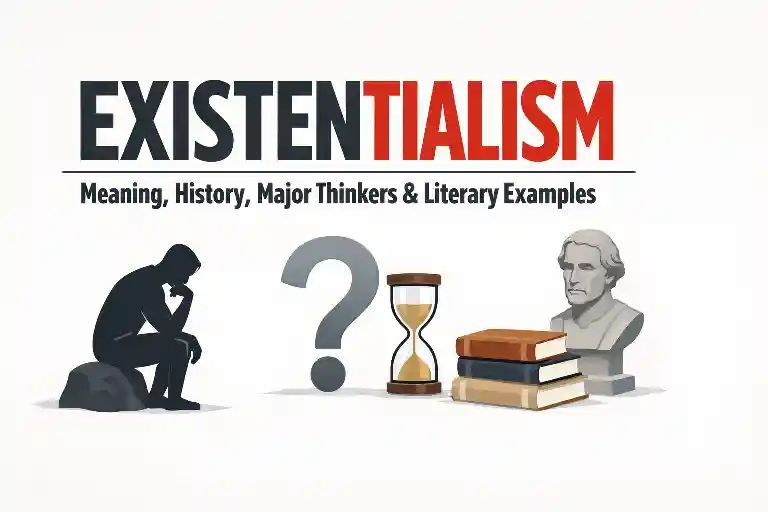“Macbeth” by William Shakespeare is a famous play that talks about big ideas like wanting too much power, feeling guilty, and how supernatural things can affect us. The story happens a long time ago in Scotland, and it’s about a guy named Macbeth who really wants to be powerful. With the help of some witches, he makes some bad choices that lead to a lot of problems.
Shakespeare, who was really good at understanding people, wrote this play to show how wanting too much (ambition) can cause serious trouble. Macbeth and his wife get caught up in doing bad things, and there are also magical elements that affect what happens.
In this article, we’ll look closely at “Macbeth” to understand why Shakespeare wrote it. We’ll talk about the characters, their reasons for doing things, and how the play teaches us about the dangers of being too ambitious. By looking at important scenes and how the characters act, we’ll explain why “Macbeth” is still important today and what it can teach us about how people behave.-
1. The Three Witches’ Influence on Macbeth:
The eerie prophecies and manipulations of the Three Witches play a pivotal role in shaping Macbeth’s fate. These mysterious figures introduce the idea of ambition and power, triggering a chain of events that lead Macbeth down a dark path. Their famous lines, such as “All hail, Macbeth, that shalt be king hereafter!“ plant the seeds of ambition in Macbeth’s mind, illustrating how supernatural elements drive the narrative.
2. Macbeth and Lady Macbeth’s Transformation:
Exploring the character development of Macbeth and Lady Macbeth reveals a fascinating evolution. Initially, Macbeth is portrayed as a noble and valiant figure, while Lady Macbeth is the driving force behind their ambitious endeavors. As the story unfolds, guilt begins to erode their sanity, highlighting the psychological toll of their actions. Macbeth’s descent into madness and Lady Macbeth’s haunting sleepwalking scenes illustrate the tragic consequences of unchecked ambition.
3. Macbeth vs. Macduff: Clashing Views of Kingship:
The conflict between Macbeth and Macduff serves as a lens through which the play examines different perspectives on kingship and morality. Macbeth’s ruthless pursuit of power contrasts sharply with Macduff’s noble and honorable character. Through their interactions, the play explores the qualities that define a good leader and the consequences of a leader who prioritizes personal gain over the welfare of the kingdom.
4. Imagery, Symbolism, and Irony:
Shakespeare employs rich imagery, symbolism, and irony to convey the underlying themes of “Macbeth.” Blood, for example, symbolizes guilt and the consequences of violence, while the recurring motif of darkness mirrors the moral decay within the characters. The ironic twists, such as Macbeth’s misplaced confidence due to the witches’ prophecies, add depth and complexity to the narrative, inviting the audience to reflect on the consequences of actions.
5. Macbeth’s Relevance in Modern Times:
Examining the enduring relevance of “Macbeth” in the contemporary world reveals its timeless themes. The play’s exploration of unchecked ambition, political intrigue, and the moral consequences of one’s choices resonate in today’s society. Additionally, the adaptability of “Macbeth” across various media forms, from films to novels, showcases its enduring impact and the ability of its themes to transcend the boundaries of time and culture.
Macbeth Introduction Quiz : 20 MCQS
Conclusion
In conclusion, “Macbeth” by William Shakespeare teaches us a warning about wanting too much power. The story shows how the Three Witches influence Macbeth, how he and his wife change because of their ambitions, and the differences between Macbeth and Macduff. The play uses images and symbols to tell a deeper story.
Studying “Macbeth” helps us understand the problems that come with wanting too much and making bad choices. The play is still important today because it makes us think about our own ambitions and how they can affect the world around us. “Macbeth” is like a mirror reflecting our own struggles with doing what we want versus doing what’s right.
In simple terms, “Macbeth” is a timeless story that reminds us about the consequences of being too ambitious. It’s a powerful exploration of human nature that shows us the dangers of letting our desires take over. So, as we read or watch “Macbeth,” it’s like looking into a mirror to understand ourselves better and think about the choices we make.
Discover more from Gyankundli
Subscribe to get the latest posts sent to your email.















2 thoughts on “Macbeth: A Tale of Ambition, Power, and Tragedy”